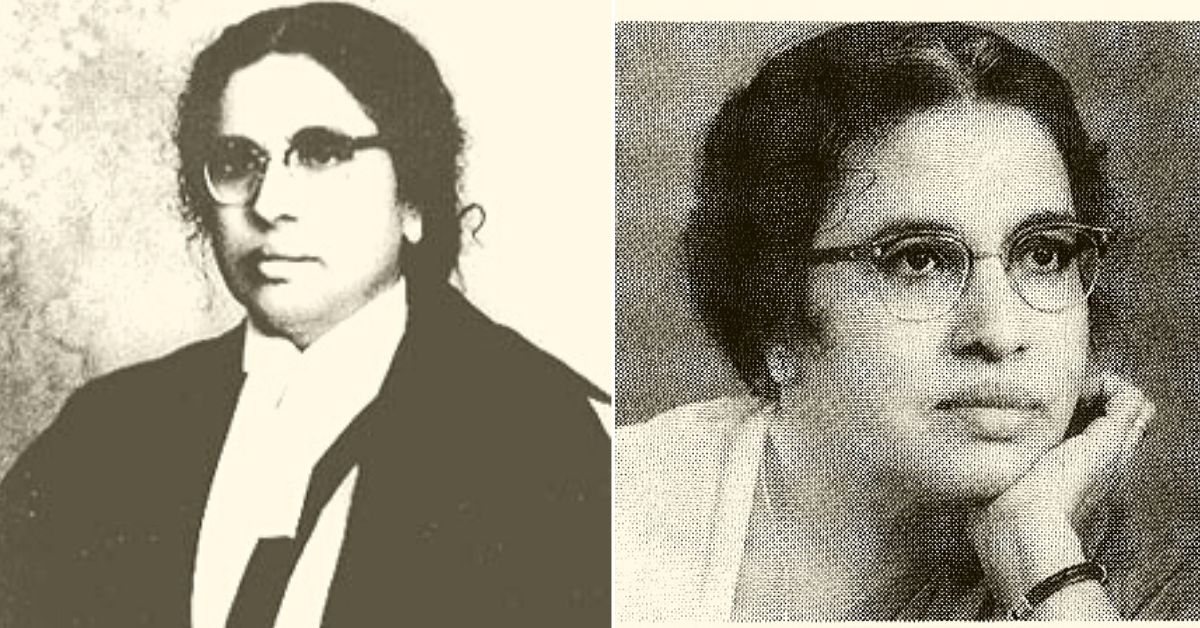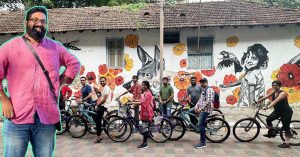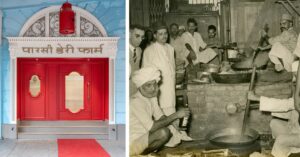How India’s First Woman HC Judge Championed Gender Equality in Pre-Independence India
"What was foremost in my mind was a fierce determination to make a success of this experiment. I knew I was a test case… If I faltered or failed, I would not just be damaging my own career, but would be doing a great disservice to the cause of women.” #FirstWomen #history #Respect

Anna Chandy, India’s first woman judge, was a trailblazer whose fearless pursuit of gender parity across different spheres of life, made her an icon of the 20th century.
As the first woman to become a high court judge in India and in her brief stint as a legislator, she fearlessly advocated a woman’s right to access the job market at a time when they were expected to remain confined in their homes, and control over their reproductive health.
Keep air pollution out and protect your body from smoke, dust and exhaust fumes with this lightweight, comfortable mask.
Born in 1905 in Thiruvananthapuram, Anna Chandy belonged to the Syrian Christian community. Losing her father soon after birth, watching her mother ably support the family and growing up amidst matrilineal traditions probably had some bearing on how she saw women as more than capable and well-rounded individuals.
Additionally, she grew up in the reign of Maharani Sethu Lakshmi Bayi, the Regent of Travancore, who promoted women into key positions and opened doors for them into educational institutions.
But that’s where the advantages end because for the large part; women were denied entry into certain professions, chiefly restricted to the household and generally denied of their agency.
By 1926, she obtained her post-graduation degree in law from the Government Law College in Thiruvananthapuram, making her the first woman in Kerala with a law degree. She began her practice a few years later as a barrister, fighting criminal cases and earning her stripes.
Besides growing into her profession, she also founded and edited Shrimati, a Malayali magazine which espoused the protection and advancement of women’s rights.
Challenging everyday misogyny, questioning the barriers to widow remarriage, speaking out against the gender wage gap and espousing a woman’s freedom to choose, Chandy definitely ruffled more than a few feathers. In many ways, she was a ‘first generation’ Indian feminist icon.
However, her public profile took off when she decided to contest elections for a seat in the Shree Moolam Popular Assembly of the erstwhile Travancore state in 1930. Unfortunately, she was subjected to classic smear tactics with opponents spreading rumours about her alleged relationship with the Dewan of Travancore.
It’s a tactic straight out of the patriarchy playbook that is still used today to shame women or attack their credibility.
But Chandy wasn’t deterred and fought elections the following year. This time she wasn’t denied and would go onto serve in the assembly for two years between 1932 and 1934.
A major cause she took up during her time as a legislator was proportional reservation in government jobs for women and demanding the status of a ‘depressed community’ community for them.
Responding to a fellow legislator who spoke out against her proposal, Chandy said, “From the elaborate petition, it is clear that the plaintiff’s immediate demand is to ban all efforts by women to gain employment, on the grounds that they are a bunch of creatures created for the domestic pleasures of men, and that their lives outside the hallowed kitchen-temples will harm familial happiness.”
“It was due to her unrelenting fight for reservation for women in government jobs that led to the abolishing of the statute that prevented women from working in government jobs,” claims this profile on Feminism in India. Following her lead, other ‘first-generation feminists’ in the region “also explicitly connected women’s political rights with other kinds of rights, for instance, legal and reproductive rights, an effort especially palpable in the writing of Anna Chandy,” write J Devika and Binitha V Thampi in their book ‘New Lamps for Old? Gender Paradoxes of Political Decentralisation in Kerala.’
For example, in 1935, Chandy argued against the exemption of women from the death penalty in Travancore law, besides challenging another law that gave men conjugal rights without taking into account their wives’ consent.
“Many of our sister-Malayalees have property rights, voting rights, employment and honours, financial independence. But how many have control over their bodies? How many women have been condemned to depths of feelings of inferiority because of the foolish idea that women’s body is an instrument for the pleasure of men?” she once wrote.
In 1937, she was soon elevated to the office of munsif (judge) in Travancore by the Dewan Sir CP Ramaswami Iyer. She was acutely aware of the responsibility that fell on her shoulders upon accepting this office:
“I must admit that I was not free from trepidation when I first stepped up to the Bench. However, what was foremost in my mind was a fierce determination to make a success of this experiment. I knew I was a test case… If I faltered or failed, I would not just be damaging my own career, but would be doing a great disservice to the cause of women.”
Following Independence, she was promoted to the office of district judge and in February 1959 became the first woman judge in an Indian High Court when she was appointed to the Kerala High Court. It was a position she held onto until April 1967, following which she worked with the Law Commission of India.
During her retirement, she published her autobiography titled Atmakatha in 1973. She eventually passed away in 1996 at the ripe old age of 91.
Having paved the way for women in a male-dominated profession and society, Anna Chandy leaves behind a tremendous legacy, and it is the work of pioneers like her that has allowed women’s right to reach this far.
Also Read: 5 Women Who Challenged the Status Quo To Become ‘Firsts’ in Indian Cinema
(Edited by Gayatri Mishra)
Like this story? Or have something to share? Write to us: [email protected], or connect with us on Facebook and Twitter.
This story made me
- 97
- 121
- 89
- 167
Tell Us More
We bring stories straight from the heart of India, to inspire millions and create a wave of impact. Our positive movement is growing bigger everyday, and we would love for you to join it.
Please contribute whatever you can, every little penny helps our team in bringing you more stories that support dreams and spread hope.



















